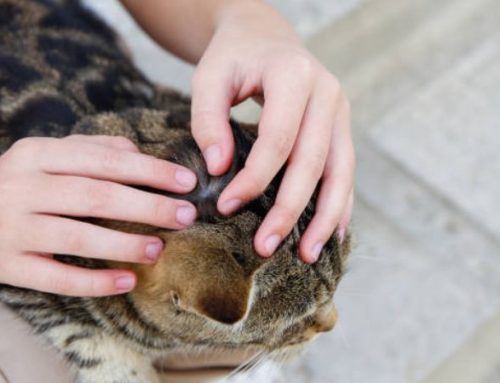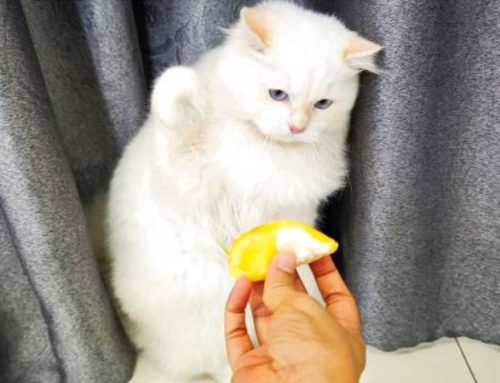When your cat’s eyes become red, watery, or irritated, it’s often a sign that something isn’t quite right. Eye issues in cats can stem from a range of causes some minor, others more serious and getting the right treatment early makes all the difference.
So, what’s the best medicine to soothe your cat’s sore eyes and bring back their bright, healthy gaze? Let’s explore the most effective options together with Nexus-pets.
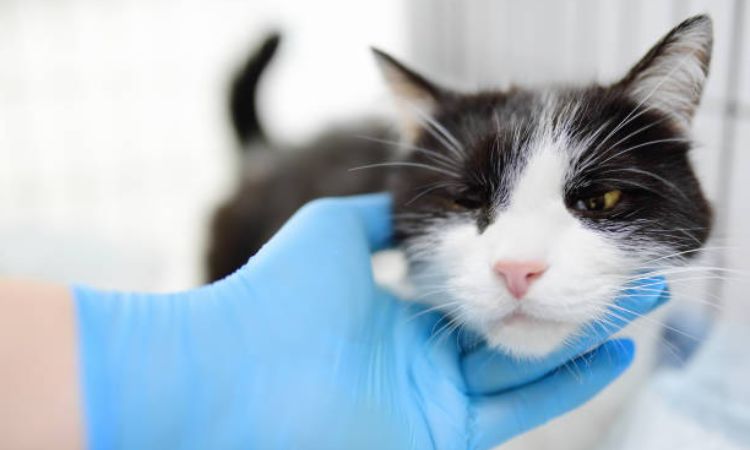
Common Eye Conditions in Cats
Cats frequently experience several eye problems that can affect their vision and comfort. Recognizing the main conditions helps in seeking timely veterinary care.
- Conjunctivitis (Pink Eye): Inflammation of the conjunctiva causing redness, swelling, discharge, and irritation. It can be triggered by infections, allergies, or irritants.
- Keratitis: Corneal inflammation that leads to cloudiness, redness, pain, and sometimes discharge. It may result from infections, trauma, or immune-related causes.
- Corneal Ulcers: Open wounds or scratches on the cornea causing squinting, redness, tearing, and light sensitivity. Requires prompt treatment to prevent worsening.
- Blepharitis: Eyelid inflammation characterized by swelling, redness, and crusting. Causes include infections, allergies, or parasites.
- Viral Infections (e.g., Feline Herpesvirus, Calicivirus): Viruses commonly cause recurring conjunctivitis and keratitis. Feline herpesvirus is a major cause, often triggered by stress.
- Bacterial Infections (e.g., Chlamydophila, Mycoplasma): Bacteria that cause conjunctivitis and other eye inflammations. Diagnosis often requires lab tests; treatment includes antibiotics.
Types of Eye Medicines for Cats
Topical Antibiotic Ointments
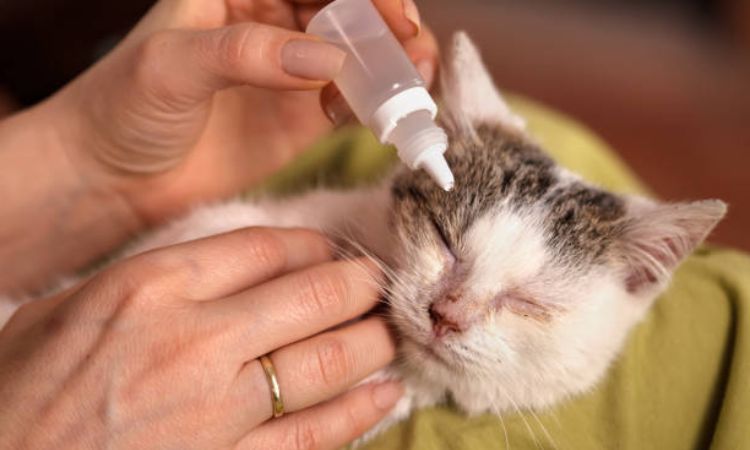
Topical antibiotic ointments are commonly used to treat bacterial infections and inflammatory eye conditions in cats. These medications work by eliminating harmful bacteria and reducing inflammation, helping the eye heal effectively.
- Terramycin® (Oxytetracycline Hydrochloride):
Terramycin® is a broad-spectrum antibiotic ointment frequently prescribed for treating various bacterial eye infections such as conjunctivitis, keratitis, pink eye, corneal ulcers, blepharitis, and other inflammatory conditions secondary to infectious diseases. - Vetropolycin® (Bacitracin-Neomycin-Polymyxin):
Vetropolycin® is a triple antibiotic ointment combining bacitracin, neomycin, and polymyxin. It is often recommended for bacterial infections affecting the eyelids and conjunctiva, providing broad antibacterial coverage. - Erythromycin Ophthalmic Ointment:
Erythromycin ointment is used to address bacterial infections involving the eyes and eyelids, particularly when other antibiotics are unsuitable or ineffective. - Generic Triple Antibiotic Steroid Ointments:
These ointments combine bacitracin, neomycin, polymyxin, and hydrocortisone, allowing for both antibacterial action and reduction of inflammation. They are typically prescribed for complex inflammatory eye conditions requiring simultaneous infection control and inflammation relief.
Topical Corticosteroids
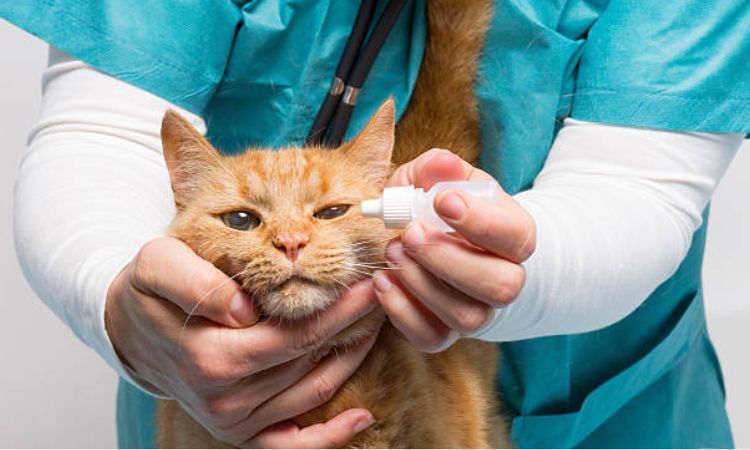
Corticosteroid eye drops or ointments are primarily prescribed to reduce inflammation associated with conditions like conjunctivitis, episcleritis, scleritis, pannus, and eosinophilic keratitis. These medications help alleviate redness, swelling, and discomfort but must be used under veterinary supervision to avoid potential side effects.
Oral Antibiotics
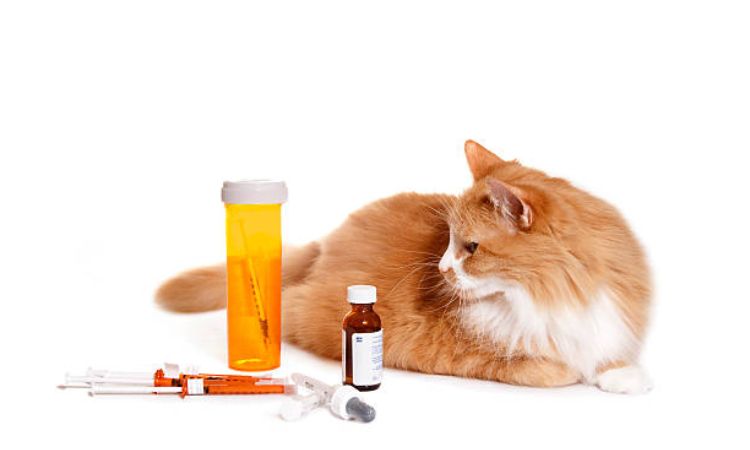
Oral antibiotics such as azithromycin may be used in conjunction with topical treatments for bacterial conjunctivitis or underlying infections. These systemic antibiotics help control infections that have spread beyond the surface of the eye or are associated with other bodily infections.
Antiviral Medications
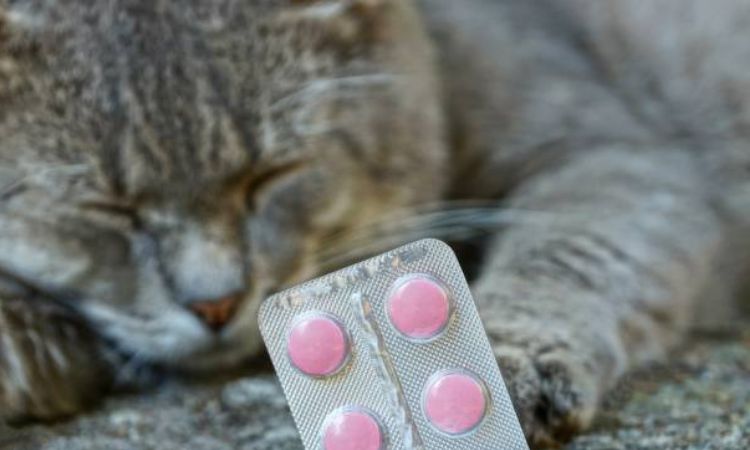
For eye infections caused by viruses, especially feline herpesvirus, antiviral drugs are often necessary. Some human antiviral ointments are prescribed off-label to treat viral eye diseases in cats, helping to suppress viral replication and reduce symptoms like inflammation and discharge.
Supporting Therapies
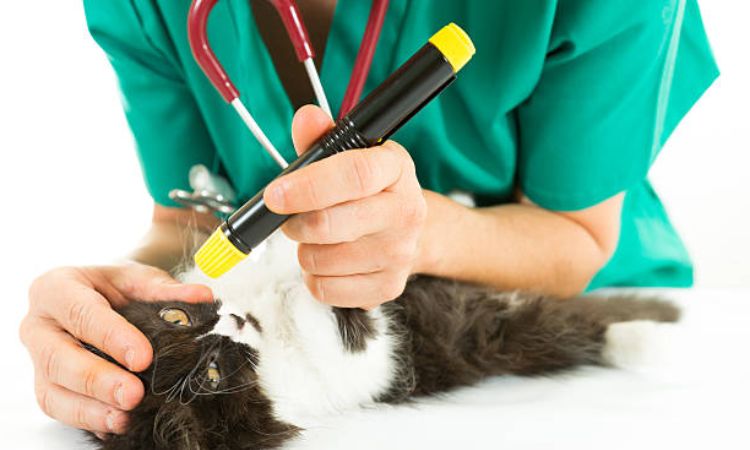
Additional supportive care plays an essential role in managing feline eye conditions:
- Saline or sterile eyewash solutions (e.g., Vetericyn Plus Antimicrobial Eye Wash) are useful for gently cleaning the eyes and removing discharge.
- Eye lubricants provide moisture and comfort, promoting healing in dry or irritated eyes.
- Immune support supplements, such as L-lysine, may help manage viral infections like feline herpesvirus by boosting the immune response and reducing symptom severity.
Natural and Home Remedies (with Caution)
When dealing with minor eye irritation or discomfort in cats, some natural and home remedies can provide temporary relief. However, it is crucial to use these treatments carefully and always consult a veterinarian before applying anything to your cat’s eyes to avoid worsening the condition.
Saline Rinses and Chamomile Compresses
Gentle rinsing of the eyes with sterile saline solution can help remove debris and soothe mild irritation. Additionally, cool chamomile compresses may offer calming effects on inflamed or irritated eyes. These remedies should be applied carefully, ensuring that the compress or rinse is clean and free of contaminants.
Aloe Vera Gel
Aloe vera is known for its soothing and anti-inflammatory properties. However, its use around cats’ eyes should only be considered under veterinary supervision. Some aloe vera products contain additives that can be harmful to pets, so vet-approved formulations are essential to ensure safety.
Euphrasia (Eyebright) Homeopathic Remedy
Euphrasia is a traditional homeopathic treatment sometimes used to relieve eye irritation and inflammation. While there is anecdotal evidence supporting its use in pets, scientific data is limited. Therefore, Euphrasia should never replace veterinary treatment but may be discussed with your vet as a complementary option.
Consulting a Veterinarian Is Essential
Despite the appeal of natural remedies, cats’ eyes are delicate and susceptible to rapid worsening of problems. Many eye conditions require precise diagnosis and medical treatment. Before trying any home or natural remedies, always seek professional veterinary advice to ensure the safety and health of your cat’s eyes.
How to Apply Eye Medicine Safely
Administering eye medication to your cat can be a delicate process, but with the right approach, it can be done safely and effectively. The key is to stay calm, be gentle, and follow proper hygiene to avoid contamination or injury. Here’s how to ensure the medication is applied correctly while keeping your cat as comfortable as possible:
- Prepare the Medication and Environment:
- Wash your hands thoroughly before handling any medication.
- Choose a quiet, well-lit space where your cat feels secure.
- Gently wrap your cat in a towel to prevent sudden movements if needed.
- Administering Drops or Ointment:
- Tilt your cat’s head slightly upward and use your fingers to gently open the affected eye.
- For eye drops, hold the bottle above the eye and let a drop fall into the center without touching the eye or eyelashes.
- For ointment, squeeze a thin strip along the lower eyelid, then gently close the eye to spread the medicine evenly.
- Avoiding Contamination:
- Never let the tip of the bottle or ointment tube touch the cat’s eye, eyelid, fur, or your fingers.
- Always recap the medicine immediately after use and store it as directed.
- Use a clean cloth or gauze if you need to wipe away discharge before application.
- Making the Experience Positive:
- Speak in a soothing tone and be patient throughout the process.
- After applying the medication, reward your cat with a treat or praise to reduce stress and build positive associations with the treatment.
- Consistency and calm handling help your cat become more cooperative over time.
Proper technique and a gentle approach can make a significant difference in both treatment success and your cat’s comfort. If you’re ever unsure, ask your veterinarian for a demonstration.
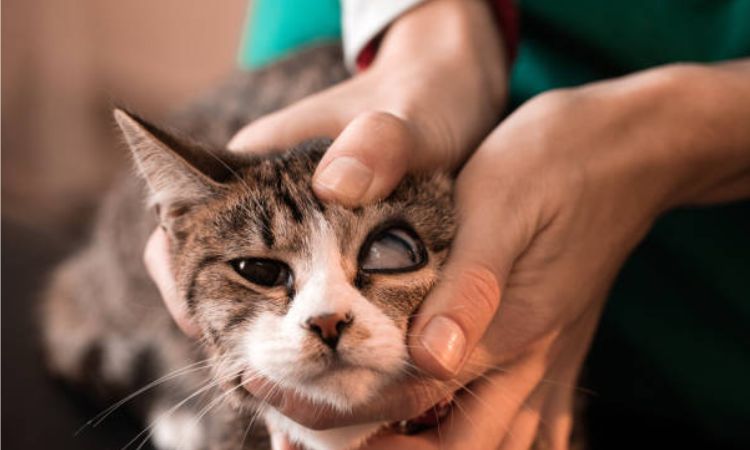
When to Contact Your Veterinarian
You should contact your veterinarian promptly if your cat’s eye condition does not improve, worsens, or shows signs of serious complications. Persistent redness, swelling, discharge, squinting, or rubbing at the eyes may indicate a deeper issue requiring professional care. Immediate attention is also essential if there are signs of eye trauma, sudden vision loss, or if the eye appears cloudy, bulging, or ulcerated.
In some cases, eye problems may be linked to underlying systemic illnesses such as feline leukemia virus (FeLV), feline immunodeficiency virus (FIV), or calicivirus, which require broader diagnostic evaluation and management. Because symptoms of various eye conditions can overlap, it’s crucial to avoid self-diagnosing or delaying treatment. A veterinarian can provide an accurate diagnosis and create a tailored treatment plan to protect your cat’s vision and overall health.
When it comes to your cat’s sore eyes, there’s no single “best” medicine. The most effective treatment is always the one that directly addresses the underlying cause of their discomfort. This means that while a vet-prescribed antibiotic might be a lifesaver for a bacterial infection, it would be useless – and potentially harmful – for an injury or an allergic reaction.





